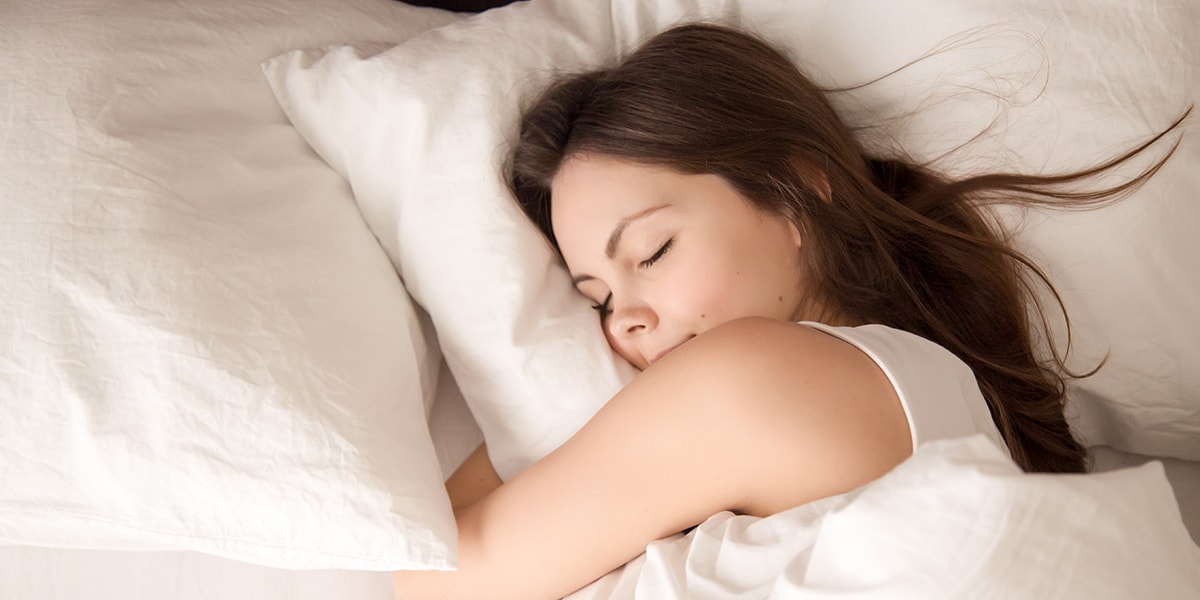The secret to better sleep

Did you know that one in four of us suffers with a sleeping disorder, like insomnia? Our body clock could be the underlying cause of our sleep disturbances.
What is our body clock? Known as the circadian rhythm, our internal body clock regulates our sleep, eating patterns and other functions, like body temperature. It resets itself every 24 hours using our external environment. When we have daylight our bodies release waking hormones cortisol and adrenaline to keep us awake and alert, but when it gets dark, we produce melatonin, which promotes sleep.
Our natural rhythm can be disturbed by excessive caffeine, jet lag, time differences when traveling, stress, etc, leading to sleeping problems. Behaviours such as using mobile phones and laptops before bed can also mess up our ability to fall asleep. Any source of artificial light tricks our bodies into thinking we should be awake and active, when we should be sleeping. The inability to get proper sleep, if it persists can increase our risk of heart disease, type 2 diabetes and other negative side effects.
How can we solve our sleeping problems and reset our body clock?
-
Go to sleep and get up at the same time every day. This will regulate your body clock and help it to develop a pattern of falling asleep every night at the same time.
-
Limit your exposure to light up to an hour or two before bed, read instead of using your phone. This will prevent your brain from thinking you should be awake. This happens when we stay up watching tv or playing video games before bed, our brains take much longer to tell our bodies that it’s time to sleep.
-
Exercise helps to boost melatonin, especially if we do it first thing in the morning.
-
Relaxation techniques such as yoga, deep breathing exercises, listening to soothing music or placing a few drops of lavender oil on your pillow will help you nod off better. Stress is a stimulus that keeps us awake. It’s important to unwind.
From a nutritional perspective:
-
Avoid stimulants such as caffeine as they increase the heart rate and adrenaline production and suppress the production of melatonin, the hormone that helps us sleep. Opt for chamomile tea instead or valerian.
-
Calcium, like a warm glass of milk, kale or spinach, can help alleviate disturbances in REM sleep.
-
Vitamin D, from natural sunlight if possible, shiitake mushrooms, salmon and tuna, could help us be less sleepy in our waking hours. The Journal of Clinical Sleep Medicine says that a lack of vitamin D has been correlated with sleepiness during the day.
-
Take selenium, found in brazil nuts, sunflower seeds, beef and chicken. This could help sleep abnormalities.
-
Melatonin, the hormone that regulates sleep can be found in small amounts in pineapples, according to one study.
-
Vitamin B: Found in nuts, like almonds are essential for the nervous system, they help reduce stress and anxiety, so help our bodies relax better before sleep.
Another tip is not to eat too much, too soon before bed, as your body will not have had time to digest the food, making it harder for you to sleep.
We hope these tips have helped. If you have sleeping problems that persist, it might be a good idea to see your doctor, but before thinking about medication, we suggest you try out these natural remedies first. Maybe counting sheep could work for you too ;) What have you got to lose?




